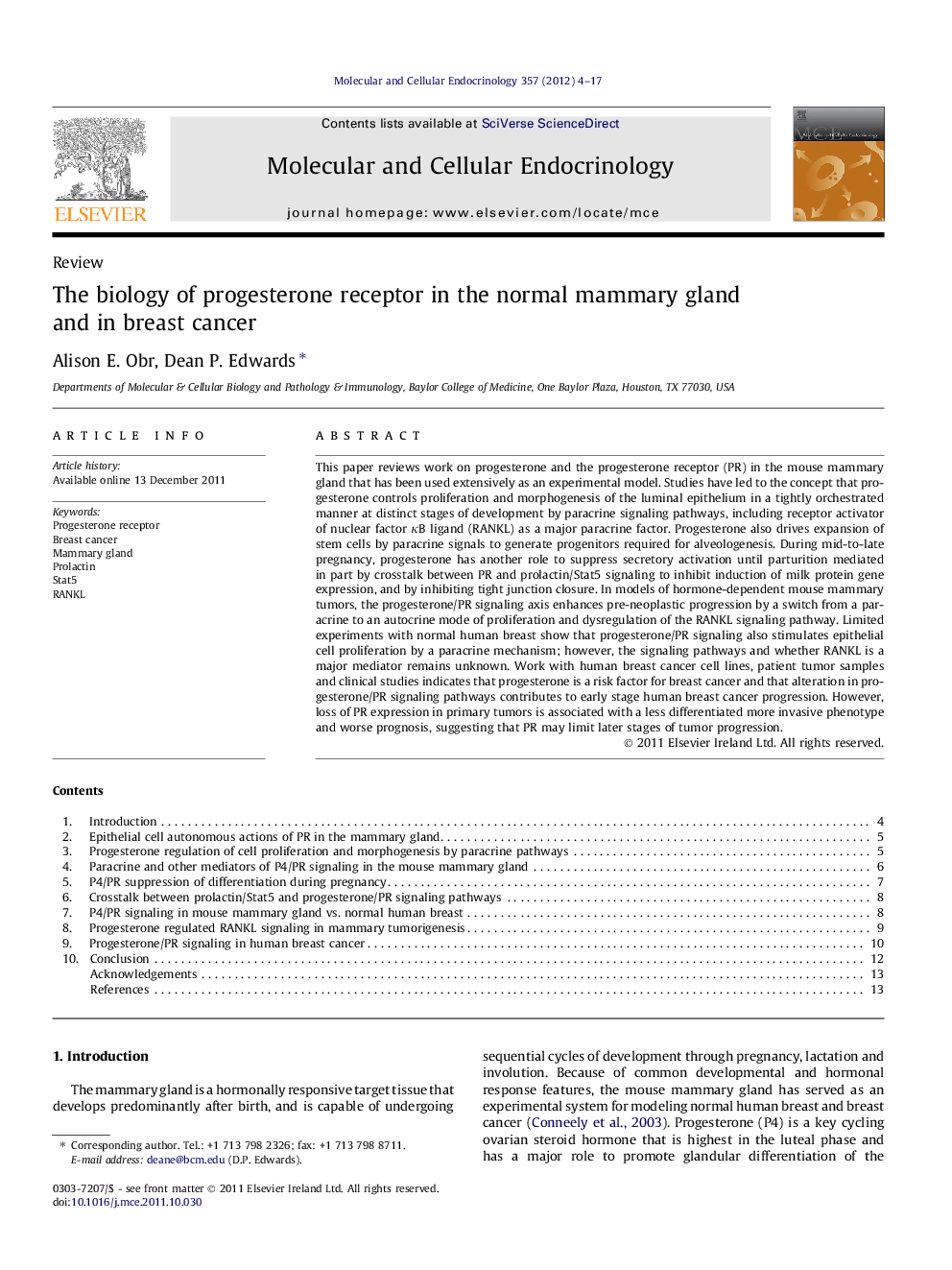| کد مقاله | کد نشریه | سال انتشار | مقاله انگلیسی | نسخه تمام متن |
|---|---|---|---|---|
| 2196321 | 1550917 | 2012 | 14 صفحه PDF | دانلود رایگان |

This paper reviews work on progesterone and the progesterone receptor (PR) in the mouse mammary gland that has been used extensively as an experimental model. Studies have led to the concept that progesterone controls proliferation and morphogenesis of the luminal epithelium in a tightly orchestrated manner at distinct stages of development by paracrine signaling pathways, including receptor activator of nuclear factor κB ligand (RANKL) as a major paracrine factor. Progesterone also drives expansion of stem cells by paracrine signals to generate progenitors required for alveologenesis. During mid-to-late pregnancy, progesterone has another role to suppress secretory activation until parturition mediated in part by crosstalk between PR and prolactin/Stat5 signaling to inhibit induction of milk protein gene expression, and by inhibiting tight junction closure. In models of hormone-dependent mouse mammary tumors, the progesterone/PR signaling axis enhances pre-neoplastic progression by a switch from a paracrine to an autocrine mode of proliferation and dysregulation of the RANKL signaling pathway. Limited experiments with normal human breast show that progesterone/PR signaling also stimulates epithelial cell proliferation by a paracrine mechanism; however, the signaling pathways and whether RANKL is a major mediator remains unknown. Work with human breast cancer cell lines, patient tumor samples and clinical studies indicates that progesterone is a risk factor for breast cancer and that alteration in progesterone/PR signaling pathways contributes to early stage human breast cancer progression. However, loss of PR expression in primary tumors is associated with a less differentiated more invasive phenotype and worse prognosis, suggesting that PR may limit later stages of tumor progression.
► This paper reviews the role of progesterone (P4) in mammary gland development.
► In the mouse P4 controls luminal epithelial proliferation and stem cell expansion.
► These P4 effects are mediated by a RANKL paracrine signaling pathway.
► Dysregulation of RANKL signaling promotes hormone-dependent mouse mammary tumors.
► Whether RANKL has a role in hormone-dependent human breast cancer is unknown.
► PR has tumor suppressor activity at later stages of breast cancer progression.
Journal: Molecular and Cellular Endocrinology - Volume 357, Issues 1–2, 24 June 2012, Pages 4–17